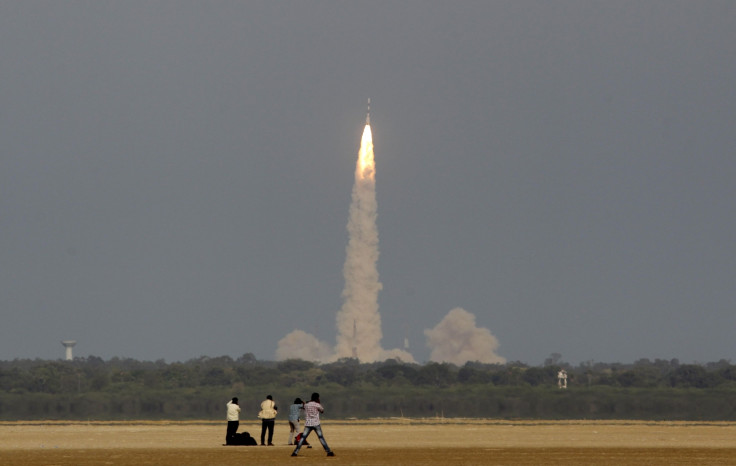Isro begins countdown for launch of rocket carrying 20 satellites

The Indian Space Research Organisation (Isro) is gearing up for a record launch on 22 June as its rocket Polar Satellite Launch Vehicle (PSLV) C-34 will fire off 20 satellites in different orbits. This will be Isro's largest launch on a single mission.
The 48-hour countdown for the rocket launch from the Satish Dhawan Space Centre in southern Indian state Andhra Pradesh's Sriharikota began at 9.26am local time on Monday, 20 June.
Speaking to IBTimes UK about the challenges faced by the agency for the launch, Isro's chairman A S Kiran Kumar said: "Once you have multiple satellites in the same launch vehicle, what you've to make sure is spacing between the releases of these satellites and ensuring that your mission profile does not result in the release of these satellites – meaning one coming in the way of the other – and the release mechanism itself."
Of the 20 satellites, three are Indian while the rest are commercial satellites belonging to foreign countries including the US, Canada and Indonesia. Two of the Indian satellites are for universities and the third one is an Earth Observation (EO) satellite, which the agency will resume after a gap of three years.
The ambitious mission is widely expected to put Isro in a competitive space with other global players in the rapidly changing industry. The number of satellites is a record for the country though similar launches have been conducted elsewhere in the past. Russia had launched 34 satellites on a single mission in 2014.
In the face of growing challenges thrown up private players in the commercial spaceflight sector, Kumar insisted Isro, the state-backed entity which has earned a reputation for being one of the most cost-effective space ventures, is confident of stamping its mark on the world.
Asked to comment on the cost-effective measures undertaken by Isro, Kumar said: "One of the things is, all the time we're concerned about how we bring in the space technology solutions for specific problems of our country. So, all the time the main emphasis is on how to make use of accessible technologies and building indigenous capabilities where there is no accessible technology."
"The first thing is to aim for coming up with solutions which are specific to our [India's] problems and needs. Right from the beginning, our intention has not been technology for the technology sake or in that fashion."
Isro has an impressive track record of carrying out as many as 32 PSLV launches putting more than 90 satellites into space since 1993. To put the agency's spending in perspective, Isro's Mars mission was a mere 11% of US's Maven probe – a project which is considered a big success at that cost. Prime Minister Narendra Modi once quipped the Mars probe was cheaper than the space-inspired Hollywood movie Gravity.
Kumar explains the key to cost-cutting. "The basic secret is an innovative approach in trying to look for solutions for specific problems on hand. All the time you're trying to address a particular problem which we're facing and in solving that take the approach wherever you've access to technology and use it. Wherever it's not accessible, you make your development. This is the key approach."
© Copyright IBTimes 2025. All rights reserved.






















